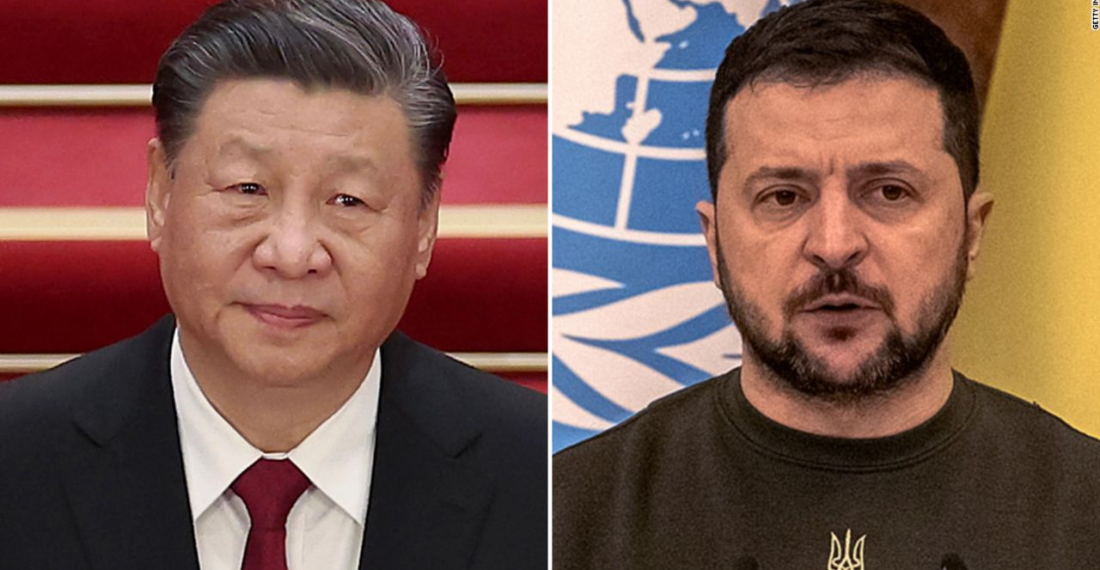Ukrainian President Volodymyr Zelensky held his first phone call with Chinese President Xi Jinping on Wednesday (26 April), discussing the ongoing war in Ukraine.
The phone call between Zelensky and Xi comes after more than a year since Russia's full-scale invasion of Ukraine, and a recent visit between Russian President Vladimir Putin and President Xi in Moscow in March. Having ostensibly long maintained a policy of "non-"interference" in the internal affairs of other countries, China has not explicitly taken sides on the Russia-Ukraine war.
With fighting in Ukraine ongoing, especially in the east of the country, in March China published a 12-point peace plan, which Ukraine soon rejected on account its vague call to "[respect] the sovereignty of all countries" but did not explicitly call on Russia to withdraw its occupying troops.
On 10 March this year, China scored a diplomatic success in mediating an agreement between Saudi Arabia and Iran, re-establishing ties that had been broken for years. In this context, some have suggested that China may want to serve as a mediator between Russia and Ukraine in the future once both sides agree to negotiations.
According to a press statement retrieved from the BBC, during the phone call, Zelensky discussed the situation in Eastern Ukraine and expressed hope for increased Chinese support in resolving the conflict. The Chinese President expressed concern over the situation and stated that China is willing to play a constructive role in promoting a peaceful resolution to the conflict.
According to the BBC, President Xi has said that China wishes "neither watch the fire from the other side, nor add fuel to the fire, let alone take advantage of the crisis to profit".
source: commonspace.eu with agencies
photo: CNN






